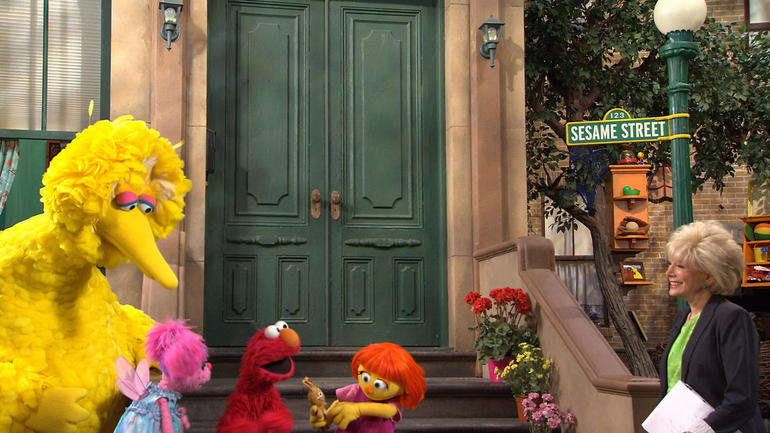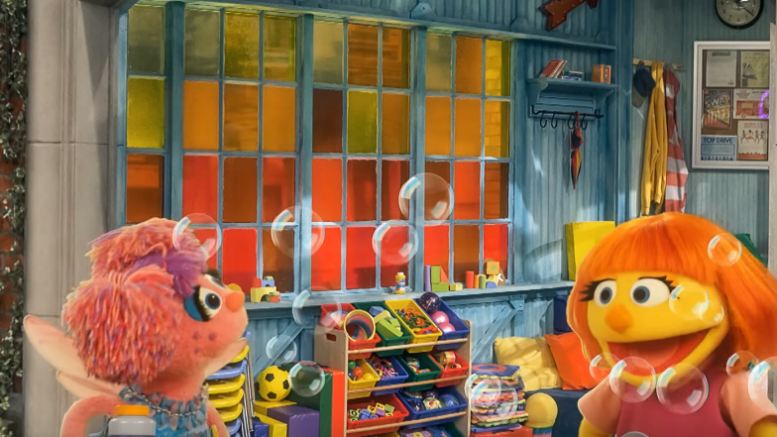Meet Julia. That’s the name of a Sesame Street episode that debuted Julia, a muppet with Autism. The former PBS stronghold show will greet millions of fans and likely some who’ve grown curious by all the associated hoopla with their own interpretation of Autism.
Sesame Street remains on PBS kids. The show is 50 years old. It carries an enormous amount of influence with it. And their newest muppet, Julia, is likely to be hugely popular. No character in Sesame Street history has been anticipated so heavily (or even anticipated at all) as Julia. In fact, Leslie Stahl and 60 Minutes have already given the new character coverage.
Leslie greets the characters as they play with their newest friends on a soundstage in Astoria, Queens.

But is the move by Sesame Street a move that is truly intended to help the Autism journey via raising awareness, or does it more seek to normalize the condition? By normalizing the condition, we, as a society, become numb to it. The more numb we become, the less we look for causes. When something is “normal,” it is no longer something we look to fix. Instead, we look to defend it and justify it.
The vaccine industry is back under fire over vaccines and Autism. Most recently, President Donald Trump appointed Robert F. Kennedy Jr. as the head of a Vaccine Safety Committee. And just a shade in the rear of that, the controversial film, Vaxxed, was subjected to intense scrutiny as it was accepted and then removed from Robert De Niro’s Tribeca Film Festival. And now De Niro continues to lobby for vaccine safety.
As much as Autism numbers continue to soar, the condition remains something we consider “abnormal.” Shows that feature autism characters typically write the narratives with the subject of Autism being a bit of an outcast. And children aren’t super exposed to these characters as they quite often occur on adult shows.
But now one of their own is going to take the path of featuring an Autistic child. And in some ways, they may normalize the condition. And that might be just fine for a vaccine industry which remains under intense scrutiny for their potential links to the condition. We could end up with a society that treats Autism as if it were an ethnicity, something chosen by God or genetics, rather than something that is a condition resulting from neurological toxins.
It remains to be seen exactly how Sesame Street intends to use Julia, but one thing is for sure, our comfort level with Autism is about to get more defined.
Many are even questioning how you can tell that Julia has Autism? What features, exactly, lead us down that path? And if we have to question that, would that then lend credence to the idea that Sesame Street is behind normalizing the condition for the greater public?
Sesame Street is no longer a “public funding” project, rather, a large scale corporate show that has a contract with HBO, one of the largest cable networks in the world. In 2016, the show remained suffering from a $21 million dollar loss for its prior three fiscal years.


Be the first to comment on "Is Sesame Street And Pharma ‘Normalizing’ Autism?"